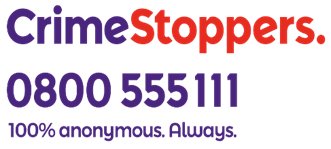Worker exploitation in Manchester’s care sector spotlighted as Crimestoppers launch anti-modern slavery campaign
On World Slavery Day (18 October), Crimestoppers is launching an awareness raising campaign to highlight potential exploitation and abuse of care sector workers across Greater Manchester. It comes as the charity appeals for people to report their concerns to them 100% anonymously.
Many care workers from overseas who are being exploited are recruited into roles to care for vulnerable people in our communities. This is because of the significant use of temporary working contracts and the conditions of employment.
It’s estimated there are at least 130,000 potential victims of slavery across the country.
Home Office data suggests the majority of exploited care workers are women from overseas, working long, gruelling hours – often 20 hours each day. Those most at risk appear to be from India, Zimbabwe and Nigeria and often earn as little as £2 per hour.
Gary Murray, North West Regional Manager at the charity Crimestoppers, said: “You may work alongside someone, visit a care setting or an adult day care centre to see an older relative. We know victims of exploitation and abuse live in fear of the people who have trafficked or enslaved them. Many do not know their rights or how to raise concerns. Victims need people like us to speak up on their behalf, so please be aware so you can spot the signs of exploitation and contact us 100% anonymously. You could make a huge difference to someone’s life.”
Detective Inspector Tim Berry of Greater Manchester Police’s modern slavery team, said: “We are still working to understand the full scale of the problem of exploitation in the care sector in Greater Manchester. This type of exploitation targets the most vulnerable and we are working with partners to ensure victims are safeguarded and perpetrators are held to account and prevented from causing further harm. It is vital that victims and the wider public report any suspicions they may have to help us build the intelligence picture and enable authorities to intervene and support the victims.”
Signs of modern slavery to spot:
- Workers being transported between venues by their employer
- Victims may be confined to their place of work
- Limited freedom to leave or communicate with others
- Long shifts without adequate breaks or rest
- Victims may lack legal status or proper work permits
- Personal and professional documents and I.D. held by employers
- Underpayment or non-payment of wages
- Multiple workers living in the same accommodation – especially multiple staff in one room
- Signs of staff having to live in inappropriate spaces - floor/shed/out-house/garage
- Another person speaking for them or someone insisting on speaking for others
- Staff kept out of the way during a visit or engagement
- Members of staff unable to communicate with their clients effectively
- Signs of physical abuse such as unexplained injuries, bruises, or scars
- Neglect in terms of health and safety.
Anonymity: When you report via Crimestoppers’ online form, you can do so safe in the knowledge that your device’s IP address is overwritten, masked and can never be identified. When you phone the charity’s UK Contact Centre your call will not be recorded, there is no caller number display and no 1471 facility. Specially trained call handlers will support you through the process and make sure your report contains no information that could identify you.

